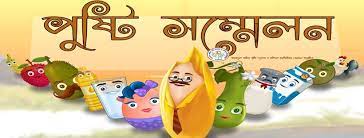-
Home
- About Us
-
Our Services
Download
Training and Opinion
-
Other offices
Divisional/District Offices
Department/Division/Ministry
- e-Services
- Gallery
-
Contact
Contact map
- Opinion
Frequently Asked Questions
Frequently Asked Questions (FAQ)
|
SL. |
Questions |
Answers |
|
1. |
Is there a difference between nutrition and applied nutrition? |
There is a significant difference between nutrition and applied nutrition in the literal sense - Nutrition: Nutrition is a biological process through which the food taken is digested, metabolized and absorbed, resulting in growth and repair of the body, production of heat and energy, and increased immunity. Applied Nutrition: Applied nutrition is the use of nutritional knowledge to consume the right food. That is, food-based nutrition is applied nutrition. Also, applied nutrition refers to a process that must include four things: 1. Selecting food in the right way; 2. Preparing the selected food for cooking in the right way; 3. Cooking in the right way; and 4. Consuming food in the right way. |
|
2. |
What kind of training does BIRTAN organize? |
BIRTAN organizes two types of training on food-based nutrition (applied nutrition) under the revenue sector. 03 (three) days long: The training is attended by newly recruited SAAOs, field officers of the Directorate of Fisheries, Livestock and Health, school/madrasa teachers, imams, priests, UP members, NGO workers, information service officers/information service assistants and other farmers.
|
|
3. |
What is the difference between safe food and food security? |
Safe food: Food that is pure and wholesome for human consumption for its intended use and suitability; Food security: Food security is one or more measures that protect food from various food hazards to protect the health of consumers. Anything in food that can contaminate food and is harmful to human health is called a food hazard. |
|
4. |
Is malnutrition simply defined as having a body weight lower than normal? |
Just as underweight causes malnutrition, consuming more food than necessary increases body weight, which increases the risk of non-communicable diseases (diabetes, heart disease, dyslipidemia, high blood pressure, etc.) in humans. This is also a type of malnutrition.
|
|
5. |
When should you eat more nutritious food, during pregnancy or while breastfeeding? |
A breastfeeding mother needs to eat more nutritious food than a pregnant mother. She needs to eat extra food to make breast milk for the baby and to supplement the mother's own body's deficiencies.
|
|
6. |
How long can a baby be breastfed?
|
Let the baby breastfeed for up to 6 months and after 6 months, add complementary foods in addition to breast milk. |
|
7. |
How much oil should a person consume daily?
|
30-45 ml or 2-3 tablespoons. |
|
8. |
How much salt should you eat every day? |
An average person should consume less than 1 teaspoon or 5 grams of salt per day.
|
|
9. |
How much sugar should a person consume per day? |
An average person should consume less than 5 teaspoons or 25 grams of sugar per day.
|
|
10. |
What should a baby be fed after birth?
|
The baby should be fed breast milk within 1 hour of birth.
|
|
11. |
How to cook vegetables while maintaining their nutritional value?
|
• Wash vegetables before cutting. • Cut vegetables into large pieces. • Use a lid while cooking. • Cook for a short time on high heat.
|
|
12. |
How much of your daily food energy should come from oils and fats? |
15 to 30 percent.
|
|
13. |
How many liters of water do you need to drink every day? |
It is necessary to drink 1.5 to 3.5 liters, or 6 to 14 glasses of water, every day. |
|
14. |
How much vegetables and fruits should you consume daily?
|
It is necessary to eat 200 grams of vegetables, 100 grams of leafy greens, and 100 grams of fruit. |
|
15. |
Why should we eat grains like red rice, red flour, and millet? |
Because in addition to adequate food energy, they also contain protein, dietary fiber, iron, vitamin B complex, and vitamin E, which are very important for keeping the body healthy. |
Planning and Implementation: Cabinet Division, A2I, BCC, DoICT and BASIS












